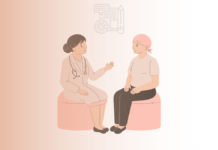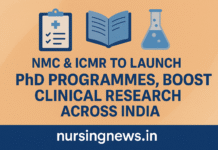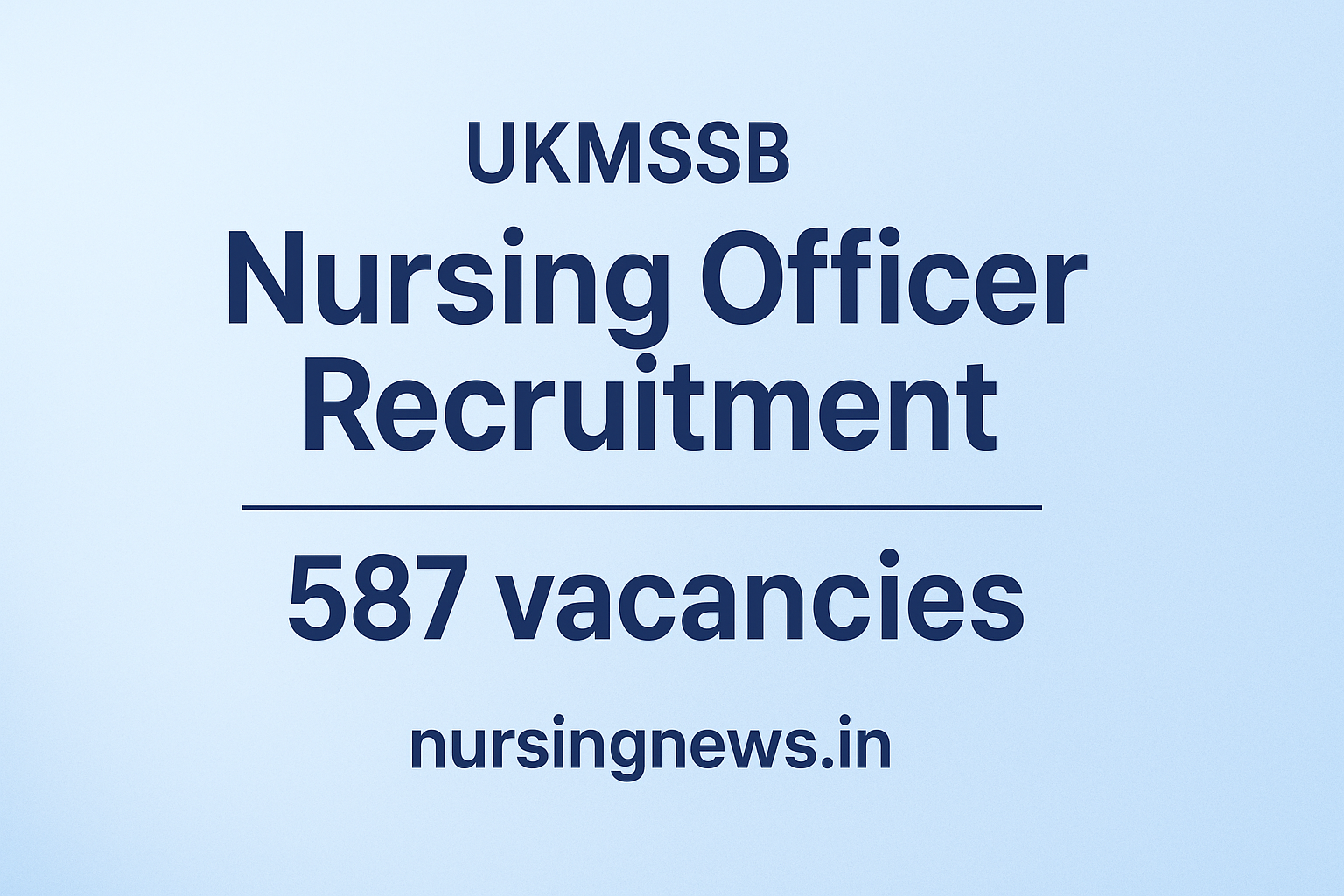The Indian government’s steadfast dedication to enhancing healthcare and education has taken a momentous leap forward with the introduction of a visionary provision in the National Nursing and Midwifery Commission (NNMC) Bill 2023. This transformative legislation proposes the establishment of a Nursing and Midwifery Advisory Council, and notably, it envisions the inclusion of directors from three prestigious institutions—the Indian Institute of Technology (IIT), the Indian Institute of Management (IIM), and the Indian Institute of Science (IISc).
Embracing the Digital Health Era
As India embraces the era of digital health, the expertise of nurses and midwives becomes indispensable in bridging the gap between technology and compassionate care. The representation of IIT in the Advisory Council brings forth a realm of possibilities, promising cutting-edge research, technological advancements, and data-driven solutions to optimize patient care and healthcare delivery. Through this collaboration, the Council aims to set new standards for nursing informatics, ultimately raising the bar for healthcare services across the nation.
The Crucial Role of the Advisory Council: Nurturing Collaboration
The proposed Nursing and Midwifery Advisory Council, outlined in Chapter VII of the NNMC Bill 2023, is envisioned as an essential advisory body to the proposed National Commission. As of now, the council is yet to be created, pending further deliberations and approvals.
The Confluence of Expertise: IIT, IIM, and IISc Directors’ Impact
The inclusion of directors from IIT, IIM, and IISc in the Advisory Council brings together a confluence of expertise from diverse domains. IIT’s presence promises cutting-edge research, technological advancements, and data-driven solutions to optimize patient care and healthcare delivery, particularly in the realm of health/nursing informatics.
A Paradigm Shift in Healthcare Management
Dr. Mansukh Mandaviya’s visionary approach in creating the NNMC Bill 2023 extends beyond the clinical aspect to incorporate efficient healthcare management. The inclusion of IIM in the Commission ushers in a transformative shift, as the Advisory Council seeks to revolutionize the industry’s management cadre.
By aligning with the government’s objective of preventing the commercialization of healthcare services, the Council aims to instill a patient-centric healthcare ecosystem with optimal resource allocation and governance. The expertise of IIM in healthcare management is poised to empower the Council to implement equitable and sustainable practices.
IISc: Envisioning the Future of Research
The inclusion of an IISc Director as an ex officio Member reflects the government’s foresight in leveraging advanced technologies, cutting-edge research, and interdisciplinary collaborations to shape policies and strategies related to nursing and midwifery education, services, training, and research. Through this collaborative effort, the Advisory Council aspires to raise healthcare standards, optimize patient care, and bridge the gap between academia and the healthcare sector.
Composition and Vision of the Nursing and Midwifery Advisory Council
The envisioned Nursing and Midwifery Advisory Council will play a pivotal role in advising the Central Government on nursing and midwifery-related matters. The comprehensive composition of the council, as proposed in the NNMC Bill 2023, is set to include:
- The Chairperson of the National Commission, who will serve as the ex officio Chairperson of the Advisory Council, providing strategic leadership to its endeavors.
- One officer representing the Ministry of Ayush, ensuring holistic healthcare integration, and serving as an ex officio Member.
- Presidents of the three Autonomous Boards, bringing extensive expertise as ex officio Members.
- The Secretary of the National Commission, who will join as an ex officio Member, offering invaluable insights into the administrative aspects of nursing and midwifery.
- One representative from each State and Union territory, nominated by respective State Governments or the Ministry of Home Affairs, Government of India, ensuring representation and inclusivity.
- The Chairman of the University Grants Commission, contributing as an ex officio Member to harmonize nursing and midwifery education with national academic standards.
- The Director of the National Assessment and Accreditation Council, serving as an ex officio Member, responsible for evaluating the quality and standards of nursing and midwifery institutions.
- One representative from the Indian Council of Medical Research, holding the rank of Additional Director General and serving as an ex officio Member, providing valuable insights from a research perspective.
- Three Directors—one each from IIT, IIM, and IISc—nominated by the Central Government, representing premier institutes and contributing their expertise in shaping policies and strategies related to nursing and midwifery education, services, training, and research.
- The Heads of three national-level professional nursing and midwifery associations, nominated by the Chairperson of the Advisory Council, ensuring adequate representation of major stakeholders.
Functions of the Advisory Council:
- Providing a platform for States and Union territories to express their views and concerns: The Advisory Council serves as the primary platform through which the States and Union territories can communicate their perspectives, issues, and concerns related to nursing and midwifery education, services, training, and research. It acts as a channel for gathering regional input and feedback.
- Shaping the overall agenda, policy, and action: The Advisory Council plays a crucial role in influencing and shaping the broader agenda, policies, and actions concerning nursing and midwifery. By discussing and deliberating on various aspects of nursing and midwifery, the Council contributes to the development and implementation of effective policies.
- Advising on minimum standards: One of the core functions of the Advisory Council is to provide advice to the National Commission on determining and maintaining minimum standards in all aspects related to nursing and midwifery education, services, training, and research. This ensures that a certain level of quality is maintained across the country.
- Coordinating maintenance of minimum standards: Along with advising on minimum standards, the Council also helps in coordinating the efforts to maintain these standards. It fosters collaboration between different regions and stakeholders to ensure uniformity and consistency in nursing and midwifery practices.
- Advising on enhancing equitable access: The Advisory Council advises the National Commission on measures aimed at enhancing equitable access to nursing and midwifery education, services, training, and research. This involves identifying and addressing barriers that might hinder access to healthcare and education in these fields.
While the proposed Nursing and Midwifery Advisory Council along with National Nursing and Midwifery Commission holds great promise for advancing the nursing and midwifery sector in India, it is essential to recognize that its creation is yet to be confirmed through further parliamentary discussions and approvals. The inclusion of directors from IIT, IIM, and IISc in this envisioned council symbolizes a collaborative effort to achieve excellence and progress in healthcare services and standards.
As the NNMC Bill 2023 progresses, the collective expertise of the Advisory Council aspires to pave the way for a healthier and more prosperous India through transformative reforms and innovative solutions.












